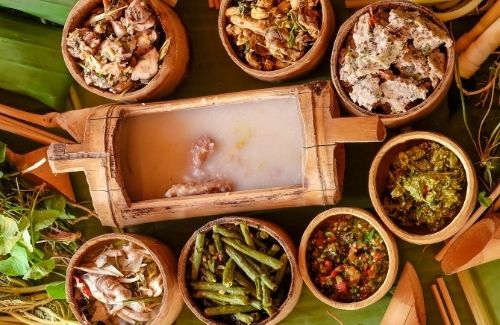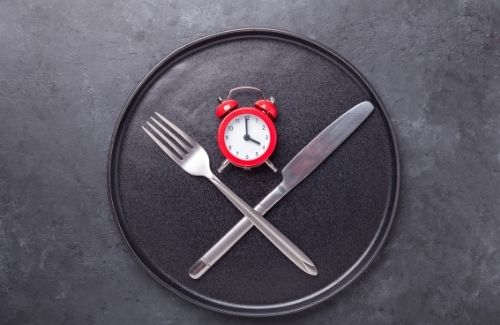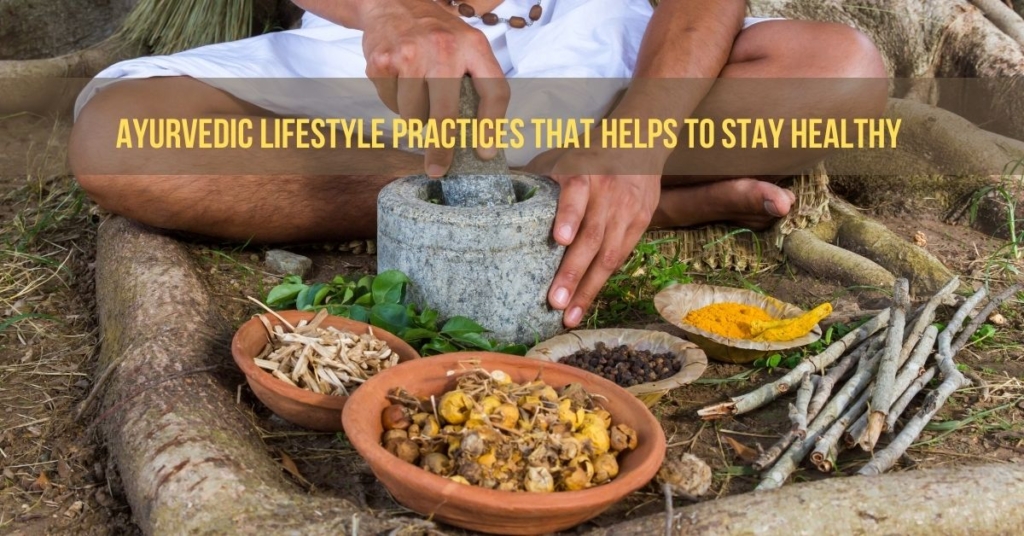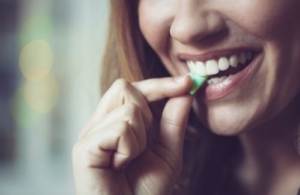Ayurveda gives us the best practices, and talking about acharyas of that time Vagbhata is one of the most influential doctor, writer, scientist and advisor of Ayurveda. Here you find 15 Ayurveda lifestyle principles which if followed can get you a healthy life.
1) Bhojanate Visham Vaari –
Drinking water at the end of a meal is akin to drinking poison. So don’t drink water immediately at the end of a meal. When you drink water after the meal, it kills the Jathar-Agni (digestive fire), making the food rot inside the system instead of getting digested. Maharishi Vagbhata has identified 103 ailments due to drinking water after eating food. The indigestion of food results in acidity, hyper acidity-ulcer, heartburn, peptic ulcer, piles, high LDL, VLDL cholesterol, an increase in cholesterol, increase in fat, obesity, cancer, etc. It is essential to drink water only after 1.5 hours (an hour and a half) of eating food.
2) Always drink water sip by sip with saliva –
Always drink water sip by the glass with saliva like one drinks hot tea. The mouth produces saliva (alkaline in nature) and ‘jatar’ (stomach) produces acids. When water is drunk by sipping, the alkaline saliva reaches the stomach to neutralize acid levels in the stomach. One who maintains a state of neutrality, the acid and alkaline in the stomach will undoubtedly live a disease-free life. This is the best way to lose weight.
Also Read: Ayurveda promises to go disease free with Self care
3) Ayurveda Lifestyle says ‘Don’t drink cold water’ –
Avoid cold drinks and cold foods. According to Ayurveda, having cold water with meals turn out to be toxic for your digestion and kills your digestive juices. Coldwater shrinks the large intestine, which causes severe constipation and leads to various other complications. Over time, this leads to the weakening and hence failure of multiple organs and causes problems like heart attack, kidney failure, liver failure, brain hemorrhage, etc. which
4) Drink water on an empty stomach immediately upon waking up –
Drinking water in the morning immediately upon waking up can have amazing therapeutic effects for a multitude of health conditions—ranging from constipation to cancer. This remarkable water therapy originates from ancient Ayurveda medicine. The Sages of India termed this therapy Usha Paana Chikitsa (early morning water treatment). According to Ayurveda, ama (toxins) is the mother of all diseases. Getting fluids into your body right after waking up will help your body flush out toxins (ama) from the body, thus boosting the immune system.
5) Always drink water and eat food only in a sitting position and not standing-
Always drink water while sitting in Sukhasan or Ukkdu (posture for milking a cow) to avoid 13 various intestinal diseases. According to Ayurveda, when you drink water while standing, the water quickly moves down the colon, thereby preventing the nutrients in the water from being absorbed. Also, Vata (air) gets aggravated, leading to many health issues such as acidity, arthritis, kidney damage, GERD, musculoskeletal ailments, rheumatic illness, indigestion, and much more.

6) Fix a time for your meals, sleep and exercise –
Food, Sleep and Exercise are the three pillars of health. They are closely related, and each one supports the other just like the house is supported by the pillars. A healthy diet and regular exercises are the most potent sleep inducers, and all three together are a prescription for good health and happiness- increasing life force (prana), vitality (Ojas), and boosting immunity (vyadhi kshamatva). Your daily regimens should be in harmony with the Sun cycle- eat a balanced diet or meal at about the same time each day, do your exercise at about the same time each day and go to bed at about the same time for a good night’s sleep every night. Ultimately, changing your lifestyle is the most important to improve your health.
7) Eat Warm Food (garam garam) –
Consume food within 48 minutes of cooking. Ayurveda lifestyle practices says, any food kept beyond 48 minutes starts to degrade. The body is best able to utilize food nutrition when consumed within 48 minutes of cooking. Health is not what you eat but how you digest it. Digestion of food is more important than eating it. Warm cooked food needs less digesting. Avoid cold foods, fast foods, processed food, red meat, alcohol, white sugar, too much salt, etc. Eat seasonal, natural, and locally grown grains, fruits, and vegetables.
8) Chew your food well –
It is food that nourishes the body, mind, and consciousness. How you eat is very important. You must eat your food slowly. This means chewing the food well. Chew each morsel 32 times since you have 32 teeth. The root cause of indigestion is eating something too much and too fast. It creates a gap in your windpipe, and you feel something wrong with your digestion; the chances are that you are likely to encounter a growling pain or, worse, feel constipated.
9) While eating, your mind should be relaxed and peaceful –
According to Ayurveda, we metabolize our food with all five senses- hear, touch, see, taste, and smell that become part of us, so mindful eating is a significant part of the Ayurveda diet. According to a new study, mindful eating reduced body weight, depression, stress, and binge-eating disorder. Mindful eating may also enhance self-control and promote a healthy relationship with food. Enjoy the act of eating; it is life-giving. According to Ayurveda, eating is an essential process for the development of consciousness as well as our physical health.

10) Consume local and seasonal foods –
Food should also be consumed according to season and geographical location. A simple rule of thumb is to consume locally grown, seasonal grains, fruits, and vegetables according to their respective climate. Each season pacifies or ignites Vata, Pitta, or Kapha, which means that the energies can get imbalanced within us if we do not take the right measure to adapt our bodies to the changing weather conditions.
11) 6 tastes of Ayurveda –
Incorporate the six tastes (rasas) of Ayurveda – sweet, sour, salty, bitter, pungent, and astringent. An Ayurveda balanced diet and nutrition are based on these six tastes (rasas). The six tastes are essential because each flavor helps to maintain a balance in the body and mind. These six tastes can help repair the imbalance when your Doshas are out of balance. To incorporate all the six tastes in your everyday diet to maintain health, balance your doshas, prevent illnesses, and feel satisfied after eating.
12) Don’t skip meals –
Skipping meals can be very harmful in the long run. It may lead to Vata disorders resulting in low metabolism, anxiety, stress, tiredness, and increased risk of chronic lifestyle diseases such as diabetes, heart disease,

hypertension, etc. ‘Breakfast’ is the most important meal. But the most commonly missed meal is breakfast. According to a recent study, skipping breakfast can cause gastric issues, reduce your energy level for the day, poor mental health, poor academic performance, and dementia. One important habit you should practice is never to skip ‘breakfast.’ If you do, you are more likely to lose weight and won’t crave unhealthy foods throughout the day. Eating three balanced meals a day at proper times helps you reduce Vata, maintain health, and keep balance.
13) Do not consume incompatible foods –
In Ayurveda, certain food combinations should be avoided. Avoid cold foods, fast foods, processed food, red meat, alcohol, white sugar, too much salt, etc.
14) Rest for 20-30 minutes after eating lunch –
There is sunshine at noontime your blood pressure rise slightly after eating lunch. So in the afternoon, you must rest lying down on your left side after morning/noon meals for 48 minutes after lunch. A short nap is also recommended.
15) Never sleep after dinner for at least 3 hours –
This is because the sun has set, and hence the biochemistry, etc., is entirely different now. Since there is no sunshine in the evening, your blood pressure dipped slightly after eating dinner. So in the evening, try to walk or do light physical activity after dinner. Sleeping soon after dinner will invite diseases like heart attack, diabetes, BP, etc.




One Response